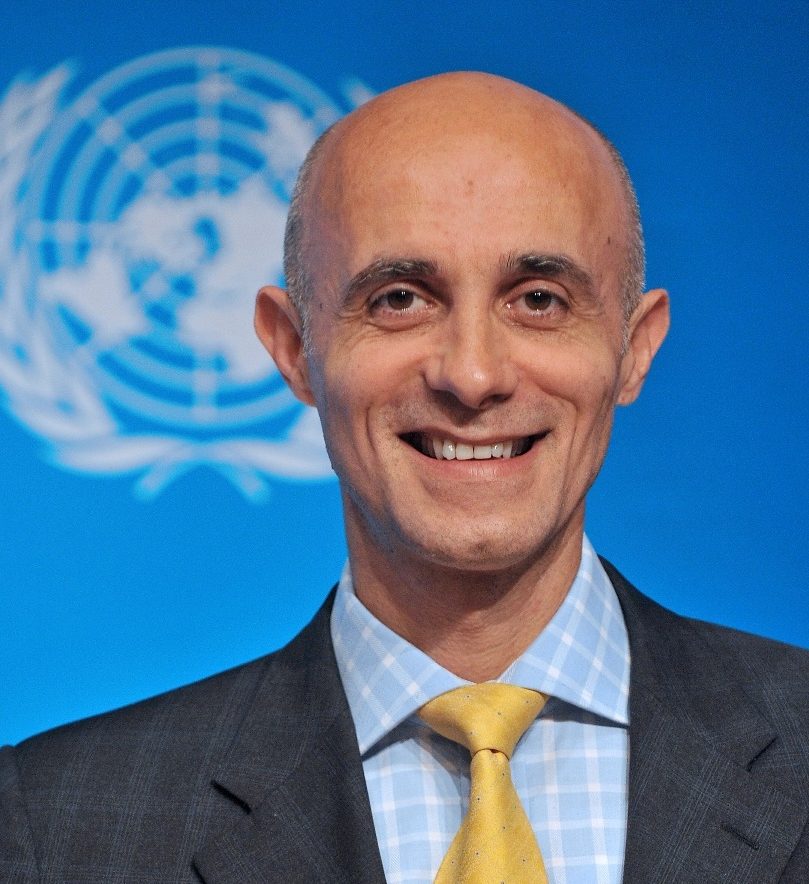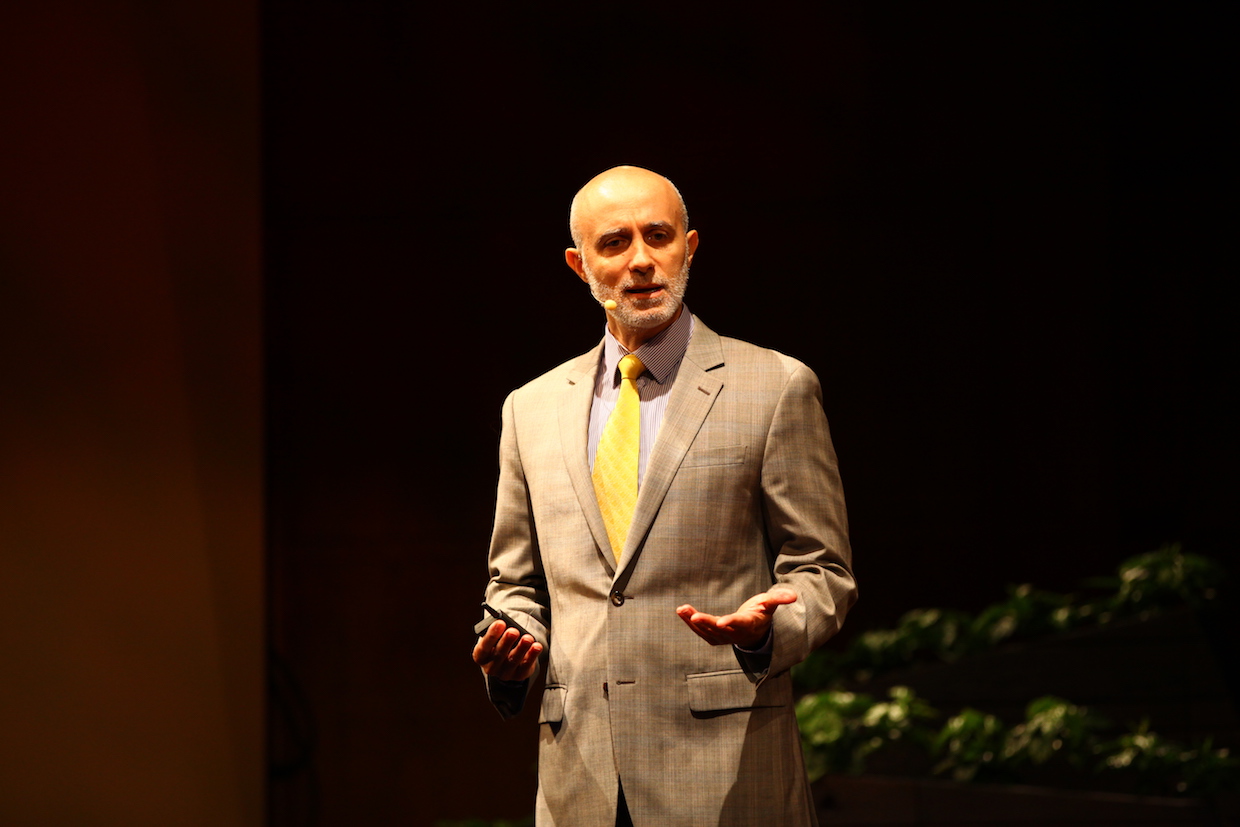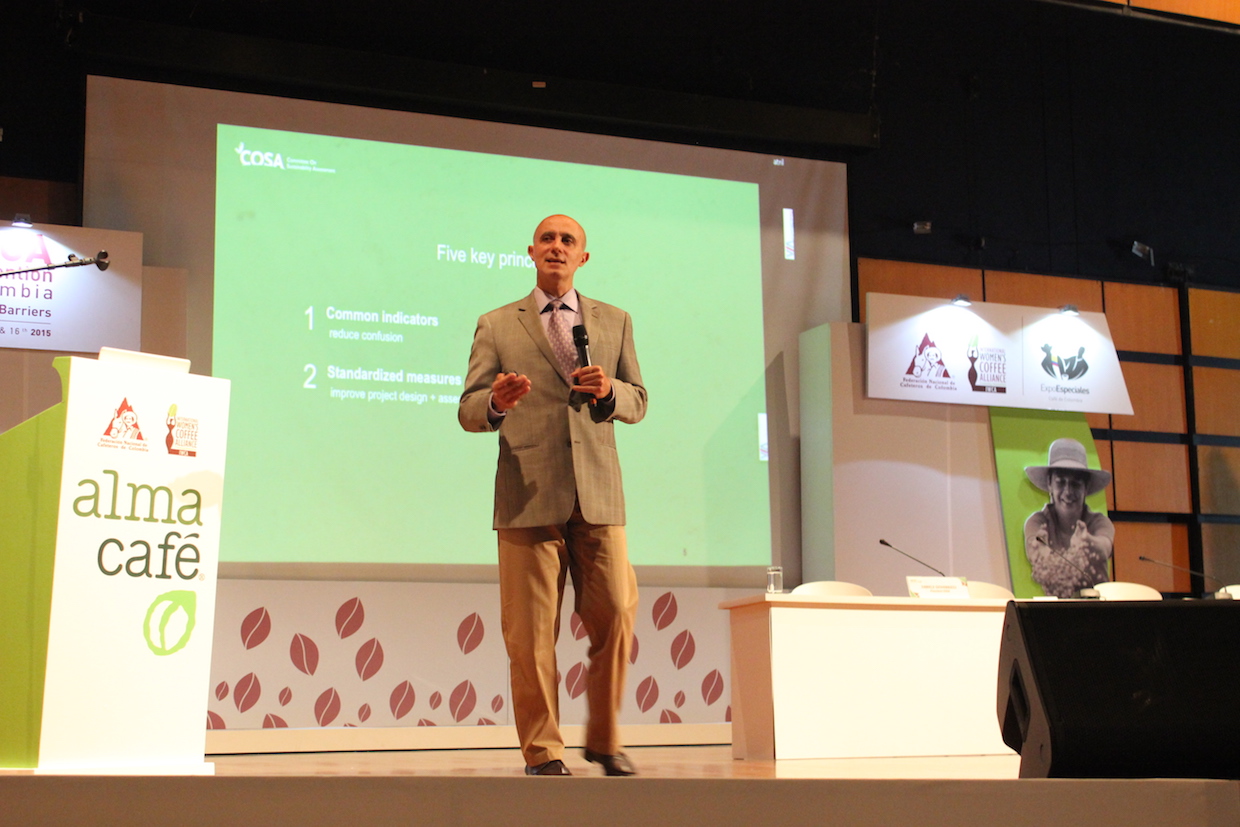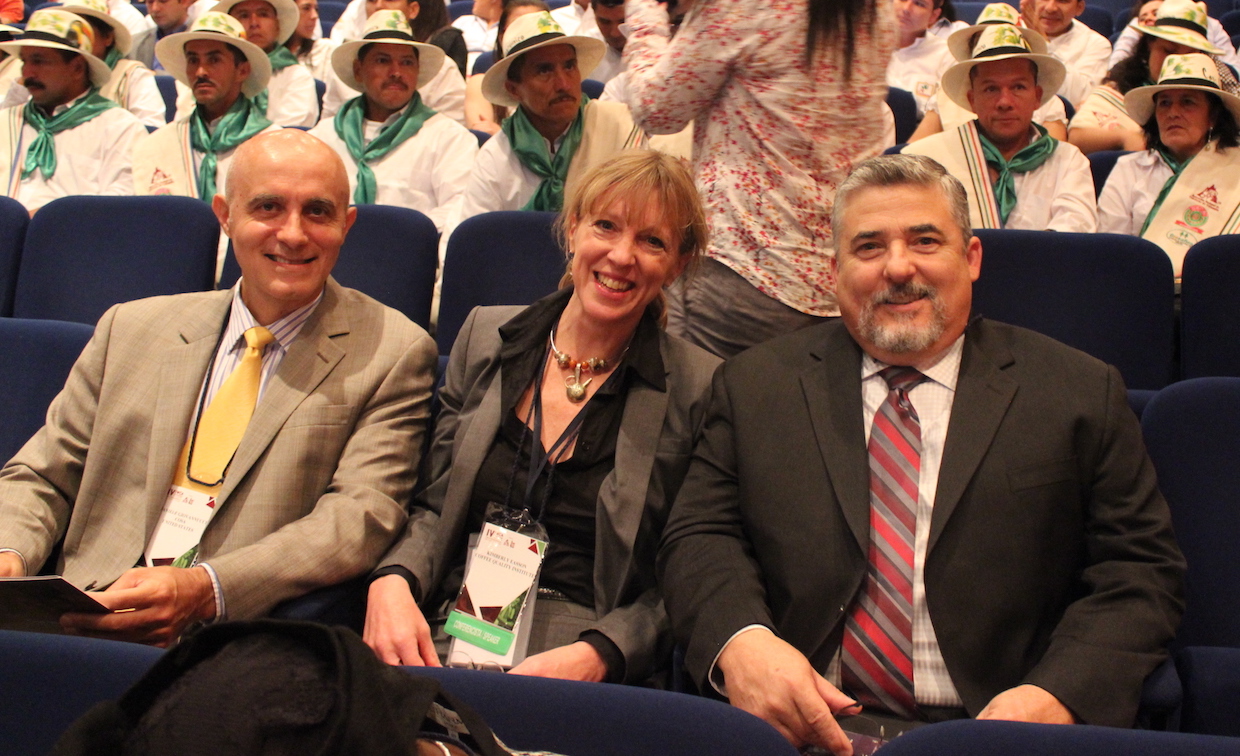
Daniele Giovannucci at the United Nations office in Geneva, Switzerland. Photo courtesy of Daniele Giovannucci.
Conversations surrounding sustainability efforts in the coffee sector tend to generate the most volume at the launch of a project, when organizations announce lofty goals with money in hand and a hopeful eye toward the future.
Yet for Daniele Giovannucci, president of the nonprofit Committee on Sustainability Assessment (COSA), the real progress begins with assessment. Giovannucci co-founded the global COSA consortium with a goal to make a difference in the communities and environments that are the most threatened, but always with an sharp eye on outcomes.
“I fell in love with coffee from the retail and roasting side as the buyer for a private firm more than three decades ago,” Giovannucci told Daily Coffee News. “That business side still exists in all my work because things have to not only feel good, they have to make sense, and a profit.”
While working as a Senior Consultant to the World Bank in 2005, Giovannucci met with a range of people in other development agencies to discuss the lack of credible metrics in sustainability tracking and the need for a common language among various stakeholders.

Daniele Giovannucci speaking at the 2015 Specialty Coffee Association Symposium. Photo courtesy of SCA.
“There is a lot of fluff and ignorance masquerading as development, and colossal sums are wasted by well-meaning funders — I have seen a lot of it first-hand,” Giovannucci said of his motivation to establish COSA. “I believed that if we could offer a pragmatic results-based alternative, it would really make a difference for those who actually care about results.”
Giovannucci has authored numerous publications on sustainability in the food and agriculture sectors, with his most recent — a textbook from Springer Publishing called “Review of Evidence and Perspectives on Sustainable Global Value Chains” — due out later this year. He has also been a frequent presenter at coffee industry events over the years, including the Specialty Coffee Association’s annual Re:co Symposium. In 2015, he gave a talk on the business of sustainability, exploring how the coffee industry can better identify sustainability metrics and assess the data.
We caught up with Giovannucci to learn more about how sustainability data is measured, which metrics could be better utilized, and how the industry-wide sustainability efforts have progressed in recent years.
DCN: What are the metrics we should be paying attention to as an industry? How do we determine if progress is being made?
Daniele Giovannucci: We are starting to see more interest in living income and living wage calculations, but we also see that that there are two key sets of metrics that increasingly drive sustainability efforts. The first has to do with farm economics — measuring key features, such as Technical Efficiency factors to determine the farm’s viability. The second is about the resilience of farming communities. This set of metrics are locally tailored to the needs of a particular community or region and can include key issues such as next-generation training, deforestation, planting the right varietals, gender inclusion, diversification, and others.
In your 2015 Re:co Symposium presentation, you talked about the importance of the democratization of data. Can you explain this concept?
Many do not know that producer communities are too often denied the direct use of all the research done on or around them — for example, how yields correlate to their use of certain fertilizers, pesticides, or renovation practices. We make efforts to distill lessons in a way that is functional for grower organizations, and we find that they are often delighted and surprised to get direct feedback from the research. By giving farming communities democratic open access to the data, they can start to become true partners in sustainable development and not merely subjects of it.

Daniele Giovannucci speaking at the 2015 International Women in Coffee Alliance Convention. Daily Coffee News photo by Lily Kubota.
From your perspective, how can we improve the standardization of measurements across the supply chain, from NGOs to the private sector?
As with any science, our understanding of sustainability will accelerate when we can standardize much of the measurement. We are getting much closer as we collaborate with a number of platforms working toward one functional approach that is both common and makes basic scientific sense. In industry, retailers and brands will be key drivers because they want to know what they are getting and where their risks lie. At origin, some producer organizations are starting to take charge of their own data and use it to thrive.
Are you seeing more sector-wide collaboration in recent years in terms of metrics, data and assessment methodologies?
In some interesting ways, yes. Building on decades of origin experience and our work with most of the major global coffee companies, we are now partnering directly with the Global Coffee Platform, ISEAL Alliance, and others toward global agreement on the most optimal metrics, which should be done by the end of the year. It has taken a while for folks to see the benefit of standardized metrics, but a lot has shifted since we opened the conversation. Now, after tens of thousands of applications by COSA and its partners, there is general consensus on the indicators. The next step is agreeing on how to scientifically measure an indicator and specifically report on it so we can all compare and learn. We are pretty close to that.
What progress or successes have you observed in the coffee industry since you began looking at measuring sustainability?
The biggest success is perhaps the general acceptance that it is not sustainable for many poorer producer communities. This year at the major coffee conferences, I noticed that many of the session titles include the “S” word, whereas it occurred only rarely even two decades ago. Also, we are now better able to discern the flaws and the ROI in many sustainability investments such as farmer training programs. The use of various novel technologies has great potential for accelerating our efforts on many fronts.

Daniele Giovannucci with Kimberly Easson and Ric Rhinehart at the 2015 International Women in Coffee Alliance Convention. Daily Coffee News photo by Lily Kubota.
Three Questions with Daniele Giovannucci
What inspires you most about coffee?
The people, always the people. Coffee really is a unique industry.
What troubles you most about coffee?
Ignorance. Too many decision makers forget that they can and really do affect people’s lives. When they understand that, they may choose to make even a small difference or an investment rather than do noting or operate simply with compliance checklists and somewhat insensitively call that “sustainable.”
What would you be doing if it weren’t for coffee?
I might take my young son Nico to live simply working at origin with others to measure and help drive real impact. After so many years working in this and in other commodities, the unrivaled passion of the coffee community appeals deeply to me.
(Note: This interview has been shortened for space and clarity)
Lily Kubota
Lily Kubota is the managing editor and digital content manager for Roast Magazine. She is based in Southern California.






Comment